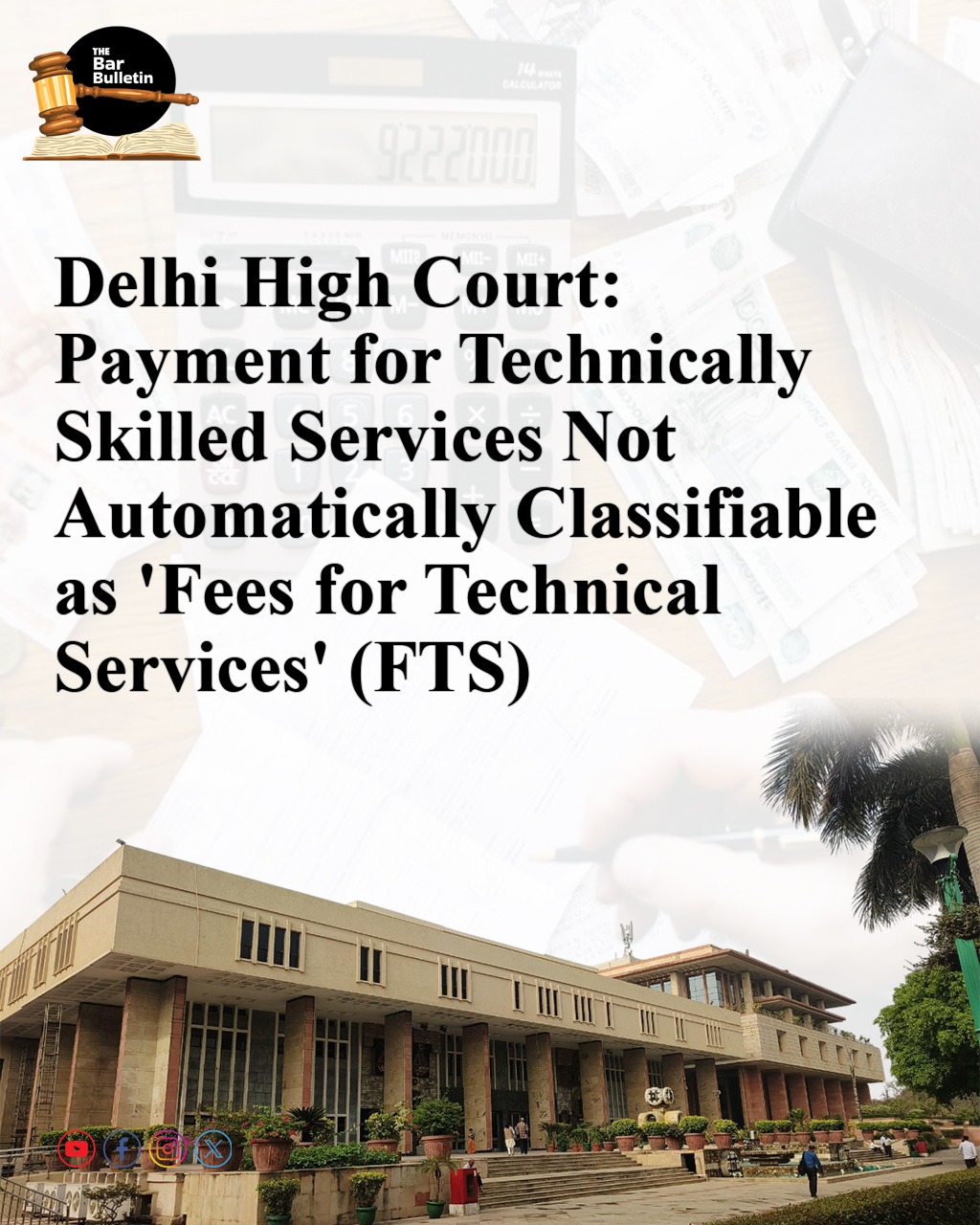The Delhi High Court recently explained the meaning of “fees for technical services” (FTS) in the context of the Tax Treaties, emphasizing that payments made for transfer of ‘right to use technology’ would be treated as FTS once the technology was made available to the recipient, and the ‘make available’ condition would be satisfied only if the receiver can deploy the similar technology and techniques in the future without depending upon the provider. The Court therefore clarified that merely availing of services that may require technical expertise, technical inventions or technology would not qualify the consideration paid for such services as FTS under Article 13 of the India-UK DTAA.
The Division Bench of Justice Tejas Karia and Justice Vibhu Bakhru observed that the Appellant (tax resident of the UK), being a proprietor of an e-invoicing software, has granted a non-exclusive license to Genpact India for the use of its e-portal/software. However, since the Appellant had merely imparted training to Genpact India without transferring the technology or knowhow involved in rendering of services, the Bench added that the same would not qualify the ‘make available’ condition, which is essential for the consideration in lieu of that licence, to be construed as FTS under Article 13 of the India-UK DTAA.
In this case, the AO received information regarding the receipt of Rs. 6 crores approx. by the Appellant from Genpact India, which, according to the AO, had escaped assessment, since no return had been filed by the Appellant. Resultantly, separate notices under Section 148A were issued for two different assessment years, to which the Appellant responded in an affirmative and submitted a tax residency certificate (TRC) to claim that the amounts received for rendering services under the agreements with Genpact were its business income and were not chargeable to tax under the Income Tax Act as it did not have any permanent establishment (PE) in India. The AO, however, treated such payment as “fees for technical services” (FTS) within the scope of Article 13 of the India-UK DTAA, and taxed the entire Rs. 6 crores in the hands of the Appellant. This assessment was confirmed by the DRP as well as the ITAT on appeal.
When the matter reached the High Court, it was noted from the Master Partner Agreement (MPA) that the Appellant had granted a non-exclusive, non-transferable licence to Genpact for use of itself or its affiliates, and the MPA also expressly provided that the ‘Partner’ (Genpact) would act as a principal and no obligations will be created for the Appellant towards the ‘End Users’. The MPA also provided that the Partner would be solely responsible for entering into a direct contractual relationship with all End Users, outlining its responsibilities to the End User. However, the MPA provided an embargo that the Appellant would retain all right, title, and interest in and to its services.
Speaking for the Bench, Justice Bakhru found that invoices generated by appellant for its customers have no link with India and Genpact did not acquire any right, title or interest in the platform operated by the appellant for generating and transmitting electronic invoices for the End Users. Also, Genpact did not acquire any technology or any right in the electronic platform for exploiting the same on its own, and its role is limited to ensuring provision of appellant’s services to the End User by onboarding customers.
The High Court therefore answered the question as to whether the payments received by the Appellant for rendering the services would constitute FTS within the meaning of Article 13 of the India-UK DTAA, in the negative, and concluded that the said receipts are not chargeable to tax under the Income Tax Act.
Appearances:
Advocates Deepak Chopra and Priya Tandon, for the Appellant
Advocates Sunil Agarwal, Shivansh B. Pandya, Viplav Acharya, Priya Sarkar, and Utkarsh Tiwari, for the Respondent
![]()



